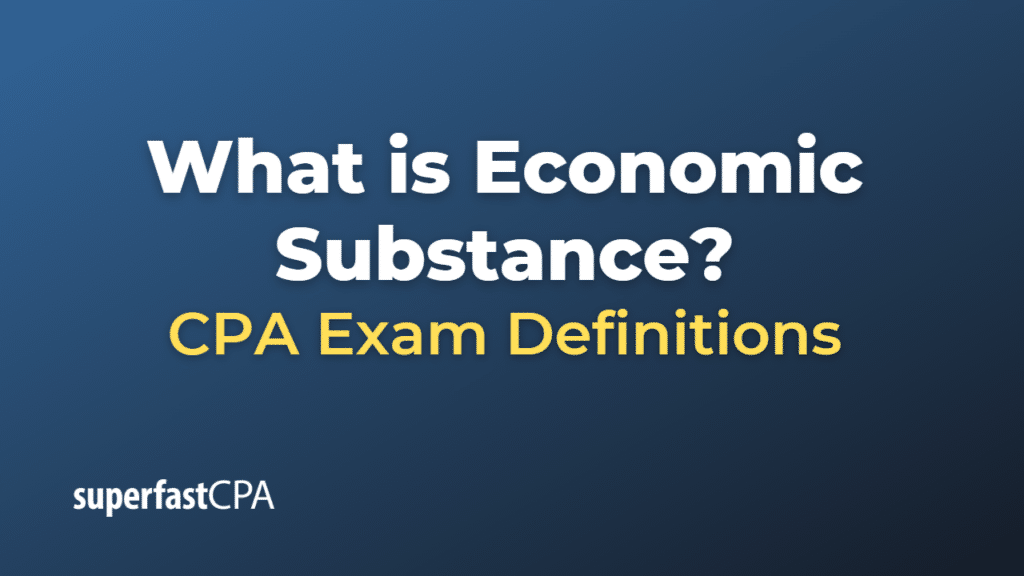Economic Substance
Economic substance refers to a doctrine in tax law which requires that a transaction must have a substantial purpose other than reducing taxes for it to be considered valid. In other words, transactions must have genuine economic reasons and business purpose beyond merely generating tax benefits.
The principle of economic substance aims to discourage businesses and individuals from engaging in tax avoidance strategies that exploit legal loopholes without providing any real economic benefit or change in economic position.
For example, if a business structures a transaction or a series of transactions in a way that technically complies with the tax code but doesn’t result in any meaningful changes to the business’s economic circumstances, the tax authorities may argue that the transaction lacks economic substance and disallow the claimed tax benefits.
This concept has become increasingly important in international taxation, with many countries implementing economic substance regulations to combat harmful tax practices and profit shifting by multinational corporations. The details of these regulations and their implementation can vary significantly by country.
Note: Tax law is a complex field with significant variation between jurisdictions, and it’s always advisable to consult with a qualified tax professional or legal advisor when dealing with these issues.
Example of Economic Substance
Let’s say Company A, based in the United States, decides to set up a new company, Company B, in Country X, which has significantly lower corporate tax rates than the United States. Company A then makes an agreement with Company B, wherein Company B charges Company A large management fees for services it doesn’t actually perform.
As a result of this arrangement, Company A can deduct these management fees as business expenses, reducing its taxable income in the United States. At the same time, these fees become revenue for Company B in Country X, where they’re taxed at a much lower rate.
From a tax law perspective, the critical question is whether this arrangement has any real economic substance or if it’s purely a tax avoidance strategy. If the management services provided by Company B aren’t genuine or don’t have a significant business purpose, the tax authorities could argue that the arrangement lacks economic substance.
If the tax authorities were to challenge this arrangement and win, they might disallow the deductions claimed by Company A for the management fees, leading to an increased tax liability for Company A.
This is a simplified example, but it demonstrates how the economic substance doctrine can be applied to prevent tax avoidance strategies that don’t have a substantial purpose beyond reducing tax liabilities. Note that tax laws and regulations vary significantly by country and jurisdiction, so the exact application of the economic substance doctrine can vary.













